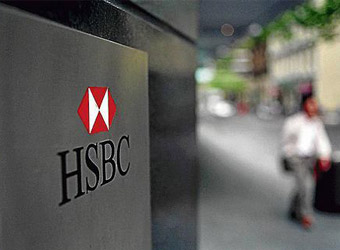HSBC said in its ‘Egypt PMI’ report issued on Monday that Egypt’s rate of output growth hit new record high in December.
December saw a solid rise in activity at Egyptian non-oil producing private sector companies, with the pace of expansion accelerating to a new series high. New order intakes also increased further, while employment levels continued to decline. Concurrently, input cost inflation accelerated, according to the report issuer.
The headline figure derived from the survey is the Purchasing Managers’ Index™ (PMI™). Readings above 50.0 signal an improvement in business conditions on the previous month, while readings below 50.0 show a deterioration.
HSBC also said the headline PMI remained above neutrality at the end of the year, posting 52.0 in December. This was down only slightly from November’s record high of 52.5 and signalled a second successive monthly improvement in operating conditions at Egyptian non-
oil producing private sector companies.
The latest survey results signalled a solid increase in output at Egyptian non-oil producing private sector firms. The rate of growth picked up since November and was the highest recorded in the survey history. New order intakes also rose, with 24% of panellists reporting growth in new work. Stronger export demand and relatively stable conditions in the country were the main contributors to the latest rise. Meanwhile, client demand from foreign markets strengthened for the second month running, with the pace of expansion the quickest in over a year-and-a-half.
In contrast to increasing output and new orders, companies remained reluctant to take on additional staff during December. Anecdotal evidence suggested that the reduction in workforce numbers was linked to the retirement of employees and the search for better job opportunities. Meanwhile, levels of unfinished work were unchanged in December.
Following a trend observed throughout the 33-month survey history, input costs increased in December. The rate of inflation accelerated to the sharpest in five months, and this was largely driven by increased purchase prices. Average staff costs also rose, but at the slowest pace in three months and only marginally overall. Despite higher input costs, Egypt’s non-oil producing private sector firms lowered their charges slightly in December in an attempt to attract new customers. Moreover, output prices fell for the third time in the past four months, according to HSBC.
Purchasing activity continued to increase in December, with 15% of survey respondents reporting an expansion.


